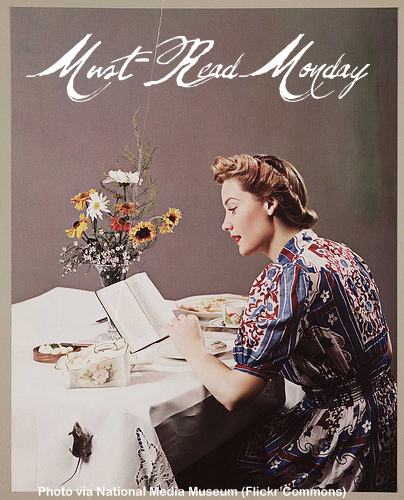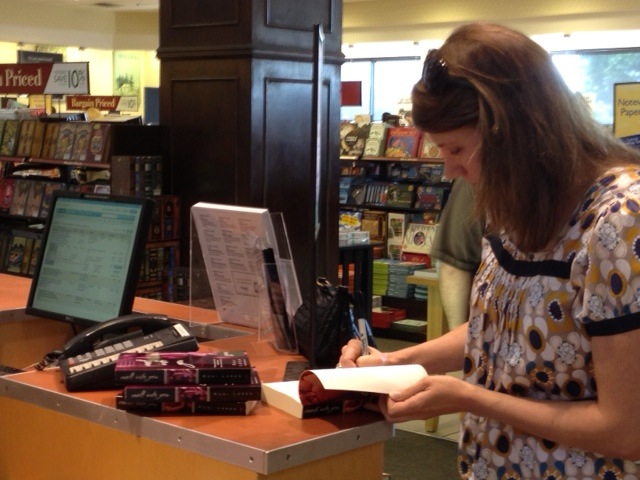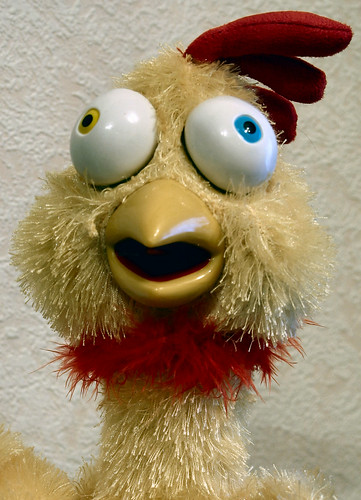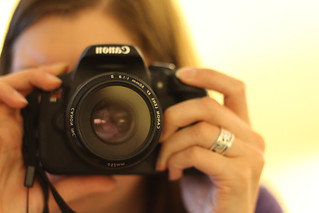 Sign at the New York Public Library (my pic)So a while back I talked about being a Slow Writer Reformed. After being a slow writer for years, I had a deadline that ended up being crazy tight because my editor and I changed the concept of the book at the last minute (a few times). Well, it resulted in me writing 97k in 55 working days and revising in 5 days. So basically, 60 days from start to finish (minus weekends since I don't work on weekends.) It was definitely a revelation to me that I could write that fast. But there was one LOOMING question. Was it any good?
Sign at the New York Public Library (my pic)So a while back I talked about being a Slow Writer Reformed. After being a slow writer for years, I had a deadline that ended up being crazy tight because my editor and I changed the concept of the book at the last minute (a few times). Well, it resulted in me writing 97k in 55 working days and revising in 5 days. So basically, 60 days from start to finish (minus weekends since I don't work on weekends.) It was definitely a revelation to me that I could write that fast. But there was one LOOMING question. Was it any good?
When you write that quickly under that intense of a deadline, you can't stop and think or analyze. You lose perspective and can't really tell if something rocks or sucks. You're too close. (And it's not like I had time to send it to beta readers to get feedback before I sent it to my editor.) So I was happy that I'd accomplished the goal of writing faster. But I was scared that the whole thing was a pile of crap and that my editor would hate it or require a total rewrite.
Well, this past week I went to NYC to meet with my editor and guess what? She loved CAUGHT UP IN YOU and said it was her favorite thing I've ever written. AND, get this, no big edits--she didn't even send it back to me, just sent it straight to copyedits (which for those of you who don't know, the copy editor is the person who doesn't change content but checks for grammar, spelling, and logic mistakes.) SO, the fastest book I've ever written and the one I was most insecure about turns out to be her favorite. (!!!)
And to give you an idea of what a crazed, fugue state I wrote it in, when my editor told me her favorite scene of the book, I couldn't even remember what scene that was, lol. I had to look it up later and was like--oh yeah, I DID write a scene with a such and such. o.0 Seriously.
And this isn't a one time occurence. Previous to this, I talked about losing perspective because with FALL INTO YOU (the book that's out now), a couple of major revisions had to be made on that book in a very short amount of time. It made me super insecure about the book because I had to just fix it ASAP and didn't have time to think over the changes. But then it came out and got the highest rating you can get in Romantic Times magazine (higher than my previous two books) AND it's by far, gotten the strongest response/reviews from readers--many declaring it their favorite of the series.
So what I'm coming to realize about my process is that my internal editor is a dangerous bitch. When I write slower, I over analyze, I overthink, and I suck out some of the magic of the creativity. When I don't have a choice but to keep writing, writing, writing, and not look back, then something wonderful happens and my right brain truly takes over. (And for the record, at the time, it doesn't *feel* like that. Even when I'm writing fast, it's always hard work. Rarely do words just fly from my fingertips with abandon. It's a very deliberate process of "must hit xxxx word count today" but it cuts out my inclination to go back and rework previous stuff to death. I have to keep moving forward to hit that daily number.)
Now, this doesn't mean that I'm going to wait until a deadline is close to start working (let's not talk crazy), but I am going to give myself my own self-imposed tighter deadline so that I work faster. And I'm going to stop worrying about if I don't feel super-confident about a book before sending it to my editor. I almost never feel confident about a book, and that's okay. I'm going to embrace that writer insecurity. It seems to mean that I've pushed myself and the story to a good (and maybe out of my comfort zone) place. It means I've taken risks. They might not always work--and that's what editors are for--but it's easier to dial back after the fact than it is to add.
So does this mean that writing faster is BETTER? For me, maybe. However, everyone's writing process is different. Some people write super fast but then have a mess on their hands and edits are overwhelming. Let's face it, most NaNoWriMo novels are not ready for primetime for a long while, if ever. Some people write slower and need that time to get the story the way they want it. If it's your first or second novel you've ever written, I can almost guarantee that a quickly written book is not ready. I know I needed my time with Crash Into You to get it right. But as you write more, you learn more and get better at craft. (Caught Up In You is the 8th book I've written.)
And most of all, realize that your current process isn't sacred or set in stone. Be open to trying new schedules or methods. If you had asked me two years ago, I would've said I was a slow writer who needed a minimum of 6 months to write a book (and that'd be pushing it.) I'd tell you that I was a pantser who could never do any pre-planning. I'd tell you I couldn't write a synopsis before writing a book. Now I'm writing 3-4 books a year, and though I'm still a pantser, I now pre-plan using the Save the Cat Beat Sheet and the Michael Hauge character profiles, which has been a tremendous help. And I write synopses to sell my books before they books are written (and kind of like writing them now).
Always, always be open to trying things a new way. If you write slowly and want to see if you can write faster, give yourself a do-or-die deadline, no cheating, and hold yourself to a daily word count. Train up like I talked about in the previous post. And don't let writer insecurity or that relentless internal editor stop you from writing. Just keep going. If you have a mess at the end, so be it--you can fix it in revisions. But maybe pushing yourself past your normal limits will inspire that one, shining scene that never would've come to you if you'd been painstakingly looking back at previous chapters deciding if her dress should be red or purple.
Anyone else discover interesting things about their own process? Do you feel like you're stuck being a "slow writer"?





